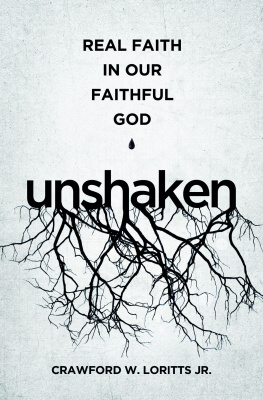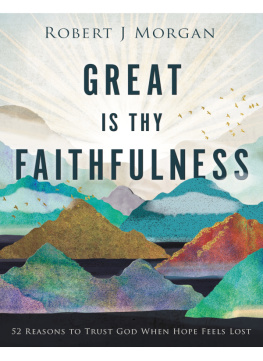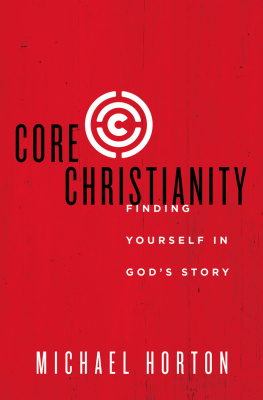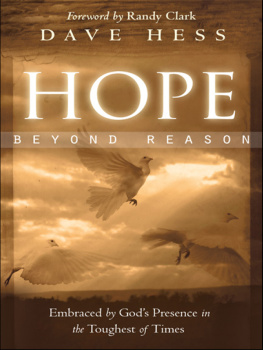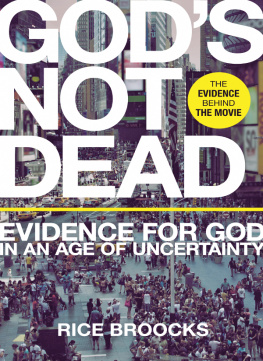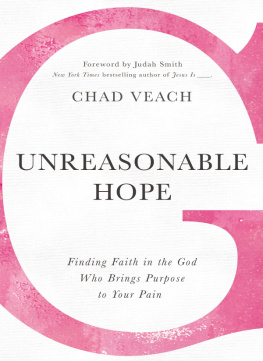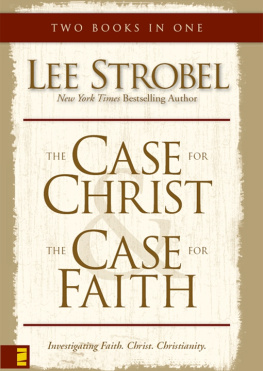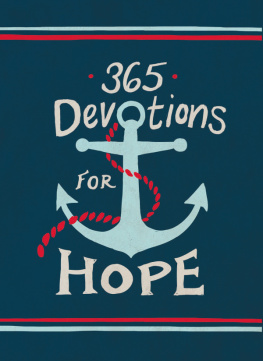Table of Contents
Landmarks
There is a bit of truth in that statement. When you either dont care about failing or dont know that you can fail, you typically put your head down and keep plowing ahead.
Do you remember Melanie Oudin? In 2009, the teenage sensation from Marietta, Georgia, took Englands Wimbledon tennis tournament by storm. Virtually everyone in the tennis world thought it was a bit of a fluke when she made it past the first round. Everyone, that is, except Melanie. She played like she didnt know that she could lose, exuding an engaging confidence that said, I belong here with the elite tennis players. There was a passion and sweetness about her that won over the crowd, as well as the announcers. No, she didnt win the tournament. But she did what many thought improbable, if not impossibleshe made it through the third round!
Thats confidence.
Confidence is the engine that drives achievement. It pushes us toward the mark, the goal. It is the it factor that distinguishes the exceptional from the average. Confidence pushes us toward focus and causes us to live with assurance and certainty. According to Merriam-Webster, confidence is full trust; belief in the power, trustworthiness, or reliability of a person or thing.
But where does it come from?
While it is true that some people seem to have been born with personalities and dispositions that exude a focused self-assurance, for most of us, our confidence has developed over time. Abilities have been sharpened and honed. We have been tested and challenged, and have learned to trust our abilities and capabilities in certain areas. In fact, the challenges have strengthened and refined both our abilities and our will to push forward. The result is a courageous confidence that says, I dont have to be afraid; this can be done.
The professional athlete doesnt sweat under pressure because hes sunk that shot, hit that ball, and made that catch thousands of times. Chances are the Academy Awardwinning actress nurtured and developed her craft for years in relative obscurity and developed an outlook that says, This may be a bigger stage, but Ive been here before and I can do this. The surgeon is focused and calm under pressure because his education, training, and experience have prepared him for that moment. In short, confidence says: Ive been preparing for this very moment. Im ready. Lets do it.
Confidence from Above
As followers of Christ, there is a distinctively different basis, direction, and source of our confidence. The Bible speaks of confidence from a vertical perspective. It is not derived from the relative consistency of our experiences and the development of our gifts, talents, and abilities. It doesnt come from the strength of our personalities or our track records of success. Likewise, it is not diminished or damaged by inconsistency, failure, suffering, dysfunction, or what so often appears to be the erratic, unpredictable nature of life.
No. Our confidence is anchored in God. He never changes. He is never out of control. He is never taken by surprise. He never loses. Our circumstances dont affect God; he affects our circumstances. God never missteps. He has no glitches. His ability to function is never overloaded. He never breaks down or crashes. He is our proactive, loving heavenly Father, who not only has a plan for our lives, but also has the resources to make happen everything he intends.
Our confidence does not depend on what we have or what we have done. Our confidence is in a personour unfailing God, who shows up in every situation, circumstance, and condition in which we find ourselves. This causes us to be resilient, to persevere, to endure.
This kind of confidence is what the Bible calls faith. Biblical confidence is an enduring faith .
Theres a relationship between the condition and strength of our faith and our view of God. In other words, the condition of our faith is a reflection of our view of God.
But our view of God is often eclipsed by what appear to be insurmountable challenges and difficulties. Added to this is the corrosive cynicism that permeates Western culture. It has become an art form. We have made it intellectually appealing to be doubters. We celebrate our incisive negative analysis of seemingly everything and everyone, from the president of the United States to local pastors, from pop icons to our neighbors. Bloggers, magazines, and the tidal wave of talk shows give us a daily autopsy, pointing out whats wrong and why we cant trust this person or that situation. And it affects us. A constant diet of the downside of life lowers our sights, clouds our perspective, and contaminates our faith.
Our faith needs to be guarded and protected, because it is the currency of the Christian life. The writer of the book of Hebrews says it clearly and directly: And without faith it is impossible to please him, for whoever would draw near to God must believe that he exists and that he rewards those who seek him (11:6). Our God confidence is no casual thing. It is key to experiencing Gods presence and power in our lives and in the circumstances and challenges we face.
Our journey through this life must be viewed through the lens of Gods Word. There we see the truth concerning who God is and how we are to face every issue and challenge in life, including those dark, uncertain times. God is there, and he is our confidence.
Abrahams God-Sustained Faith
The patriarch Abraham presents a compelling example of a God-sustained confidencefaithduring a dark, seemingly impossible time in his life. He kept believing.
Look closely at the apostle Pauls description of Abrahams enduring faith in Romans 4:1621:
That is why it depends on faith, in order that the promise may rest on grace and be guaranteed to all his offspringnot only to the adherent of the law but also to the one who shares the faith of Abraham, who is the father of us all, as it is written, I have made you the father of many nationsin the presence of the God in whom he believed, who gives life to the dead and calls into existence the things that do not exist. In hope he believed against hope, that he should become the father of many nations, as he had been told, So shall your offspring be. He did not weaken in faith when he considered his own body, which was as good as dead (since he was about a hundred years old), or when he considered the barrenness of
I believe four words summarize Pauls description of Abrahams faith. I believe these words represent the core characteristics of enduring faith. Frankly, this is powerful, liberating stuff. It is my prayer that as you embrace these characteristics and their meaning, hope will burst forth in the midst of your trials and opposition.
Based
The first of the four words is based . Abrahams faith was based on something. Verse 21 says that what kept Abraham believing was his conviction that God was able to do what he had promised. Abrahams confidence was in Gods integrity, Gods unfailing consistency in doing what he says. God had made a promise to Abraham, and Abraham knew that God always keeps his promises. Notice that God had made the promise. Abrahams faith was based on what God had said.
Too many of us have grown discouraged because we have concluded that this faith thing doesnt work. We say: I desperately wanted God to do something for me. I believed that he would do it. I was full of hope and optimism. But God let me down. The question is, what did we base our faith on? Was it anchored in Gods Word? Did he promise to do what we wanted?
Faith does not come up with things for God to do. Faith responds to what God wants done. Faith releases the plans and purposes of God through our lives. Further, there is a relationship between the clear statements and promises in the Word of God and what he places before us or on our hearts to do, become, or accomplish. This is one of the most important anchor lessons in the Christian life.

